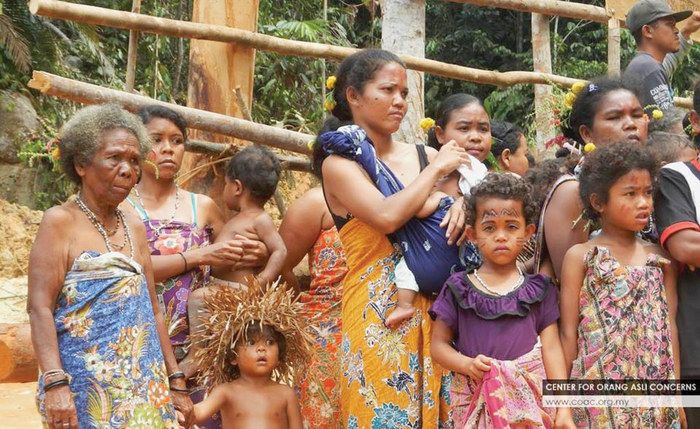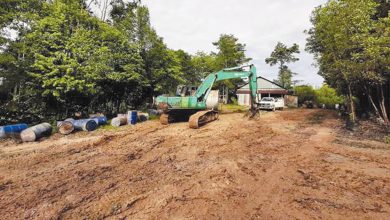Thinking Allowed: Targets of Industrialists and State


By Mariam Mokhtar
The Orang Asli (OA) of Peninsular Malaysia and the indigenous people Sabah and Sarawak are the forgotten inhabitants of Malaysia. People, on the pretext of helping them, take advantage of them.
For centuries, they lived in isolation in the jungles but their communities along the jungle fringes faced constant persecution. It has been documented, in history books that in the 18th and 19th centuries, warring Malays invaded their villages to kidnap their women and children for slavery. This stopped when the British intervened.
During the Malayan Emergency, the OA helped track down communist insurgents and in 1954, the Aboriginal Peoples Act was passed to protect them and their lands. With the formation of Malaysia, a programme of integration and assimilation began in 1961. Unfortunately, the Act only covered certain ground rules, and the tendency was to regard the OA as wards of the state.
The Act failed to recognise the rights to their own land. With a failure to identify their rights, successive administrations helped to erode the OA culture, identity and way of life.
State authorities continue to treat the OA as an inconvenience, herding them into settlements, and ignoring their welfare. This gave rise to dissatisfaction about land possession, displacement, resettlement and even choice of crops for cultivation.
On protected forest/parkland, the state authorities dictate the activities which may be permitted. An NGO for OA, on condition of anonymity, said, “Hunting is forbidden, fishing is not allowed and cultivation of crops is subject to the park authorities scrutiny.”
Recently, we read about a form of social engineering being practised in OA communities. Their definitive social structure is dismantled and conversions to Islam are encouraged. Many complained that their identity cards had “Islam” on them although they were not Muslims.
Following the latest expose of the mysterious OA deaths in Kelantan, it was alleged that birth control medication was given to OA mothers. The Ministry of Health has denied this. But how does one explain the scores of women who were given family planning and birth control medication, without them being told of the consequences?
The stand-off between the Temiars of northern Perak, and the state, in February, is a case in point.
The authorities are only concerned for the big-time players. They failed to consider the destruction of the environment and the cessation of the way of life of the Orang Asli.
The OA’s way of life does not destroy the jungles. They hunt and fish only for their immediate needs. There is no waste, as they share their hunting spoils with other families. They forage and, where possible, cultivate suitable crops. The pristine rivers were their source of water for drinking and washing.
The Perak MB said that jobs would be lost if logging were to cease. The annual cutting down of trees was done in accordance with the annual cut ration, authorised by the National Land Council.
What about the way of life of the OA? Once the loggers are allowed onto OA ancestral lands, trees will be felled.
The loss of trees will mean that animals will leave the area. Animals may live off certain fruits and plants. If these are destroyed, the animals will be deprived of a food source. When the animals move away, how will the OA survive?
Once the big trees have been felled, not just for timber, but for paper and the pulping industry, the vegetation will be cleared for the next big environmental calamity – oil palm cultivation.
Politicians have suggested that the OA start an industry weaving baskets and mats, but they forget that rattan grows in the jungle and not in oil palm plantations. The OA would have to travel miles into the interior to harvest the rattan to make rattan baskets.
How do the authorities expect the OA to market their products when there are no roads or bridges to their remote villages? The welfare of the OA is being overlooked because logging is more lucrative. Price of logging permits is never revealed. Why is this so?
The OA are not the only people being let down. No effort is made to stop sand mining in the seas off the coast of Perak. An estimated 190 million cubic metres of sand will be mined to build three artificial islands in Penang.
The state government should be mindful of the environmental degradation caused by sand mining. Mudflats and beach erosion will destroy turtle nesting areas, prawn and fish habitats.
Like the OA, the 9000 fishermen in Perak will have to say goodbye to their way of life and livelihood, because sand mining and logging are more profitable.


